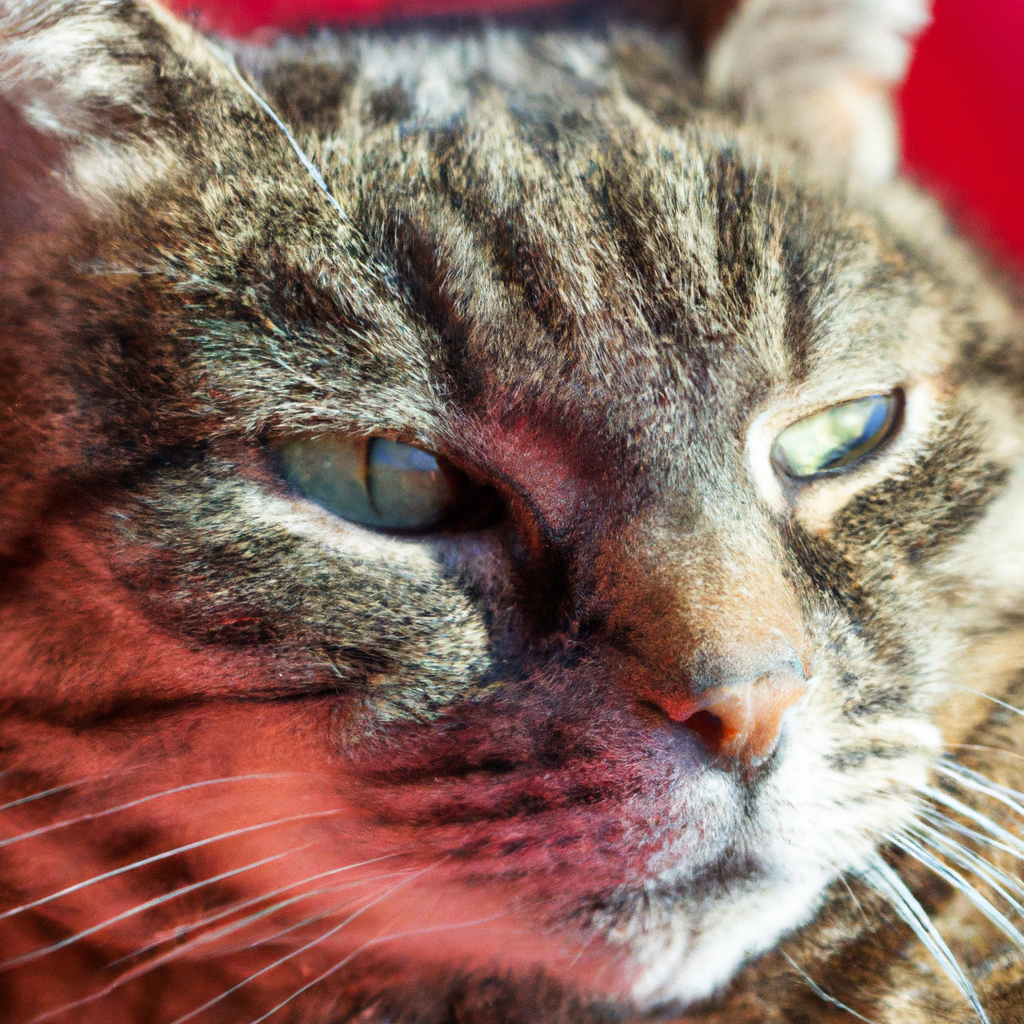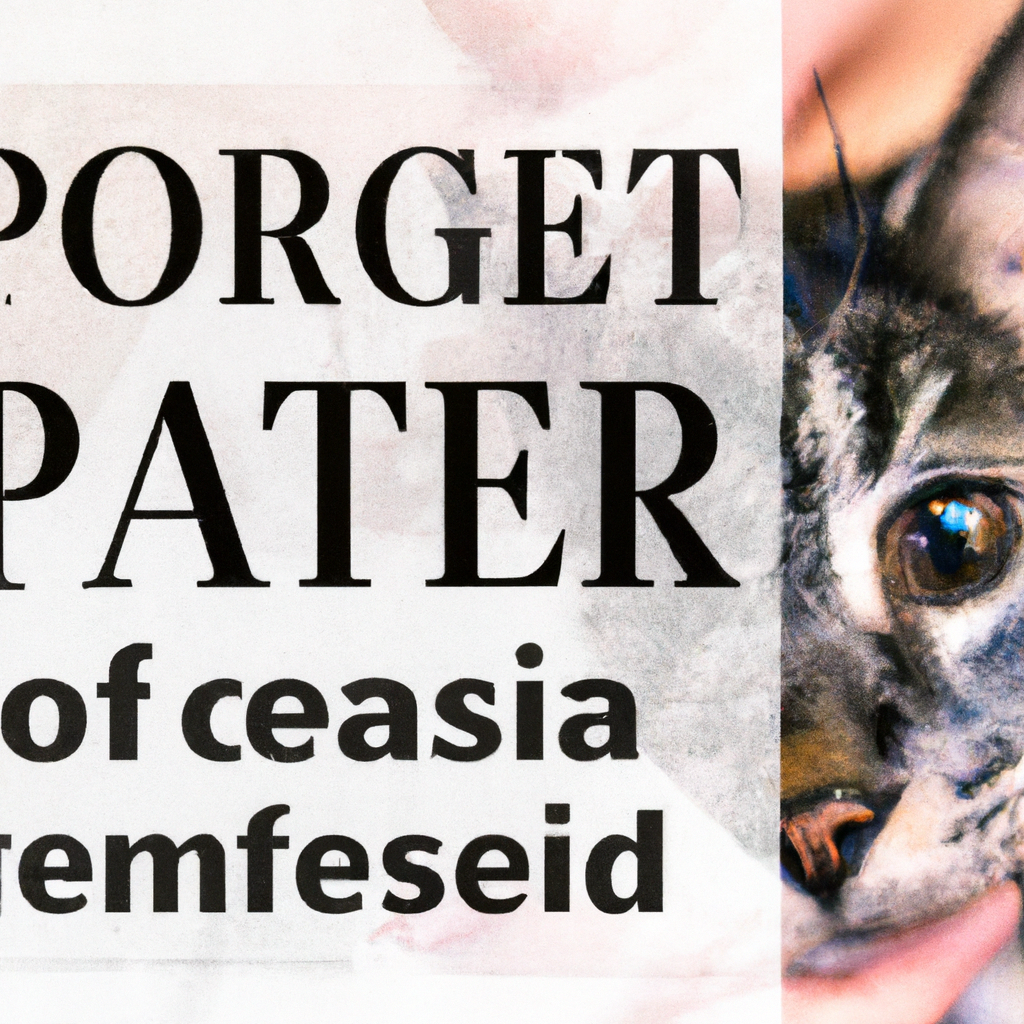Step into the world of senior cat care, a journey filled with love, wisdom, and a touch of grey whiskers. As our beloved feline friends gracefully embark on their golden years, it becomes crucial to provide them with the utmost care to ensure their physical and emotional well-being. Just like the rich tapestry of life, each senior cat comes with a unique set of needs and challenges. With this article, we delve into the secrets of keeping your aging feline companion healthy, so that together, you can continue creating cherished memories for many more whiskered adventures ahead.
1. Embracing the Golden Years: Nurturing Your Feline Friend as They Age
As our feline friends age, it is essential for us to provide them with the care and attention they need to ensure a happy and healthy golden period. Just like humans, cats go through various changes as they get older, both mentally and physically. By understanding these changes and making a few adjustments in our caregiving routines, we can help our furry companions sail through their senior years with ease.
1. Diet:
One of the most crucial aspects of caring for an aging cat is providing them with a suitable diet. Older cats tend to have a slower metabolism and may face issues with digestion or loss of appetite. Opt for a high-quality, age-appropriate cat food that includes essential nutrients for their specific needs. Additionally, consult your veterinarian to determine if any dietary supplements or adjustments are necessary to support their overall health.
2. Environmental Adaptations:
Creating a comfortable environment for your senior cat is essential to ensure their well-being. Consider these adaptations:
- Provide easy access to elevated surfaces, such as ramps or steps, to make it easier for them to reach their favorite spots.
- Ensure their litter box is easily accessible and has low sides to minimize the chance of accidents.
- Place comfortable bedding in warm and quiet areas to offer them a cozy spot for rest and relaxation.
3. Regular Veterinary Check-ups:
Regular visits to the veterinarian are crucial during your cat’s senior years. Stay updated on vaccinations, as older cats may have a weaker immune system. Additionally, schedule routine check-ups to monitor their overall health, including dental hygiene, weight management, and any signs of age-related illnesses. Early detection is key to addressing potential health issues promptly.
4. Mobility and Exercise:
As cats age, their mobility may decrease due to arthritis or other joint issues. Encourage gentle exercise through interactive play sessions with appropriate toys that suit their abilities. These activities promote mental stimulation, strengthen muscles, and help them maintain a healthy weight. Additionally, provide cozy resting spots near windows to allow them to enjoy the sights and sounds of the world without physical strain.
5. Emotional Well-being:
Senior cats may experience changes in behavior or exhibit signs of anxiety or stress. Spend quality time with your feline friend, offering them plenty of affection and praise. Maintain familiar routines and avoid major changes in their environment whenever possible. Consider engaging in activities like gentle brushing or massage to provide comfort and alleviate stress.
By embracing the golden years and nurturing our feline friends as they age, we can ensure that they live their best lives filled with love, comfort, and happiness.
2. Aging Gracefully: Expert Tips to Ensure Your Senior Cat’s Well-being
Your senior cat has been your faithful companion for many years, and now it’s time to ensure they age gracefully. As cats get older, their needs change, and it’s essential to provide them with the care and attention they deserve. Here are some expert tips to help you keep your senior cat happy and healthy.
1. Regular Veterinary Check-ups: Just like humans, senior cats require more frequent visits to the vet. These check-ups allow the veterinarian to monitor your cat’s health and detect any potential issues early on. Regular vaccinations, dental exams, and blood work are crucial in maintaining your cat’s overall well-being.
2. Balanced Diet: Providing your senior cat with a proper and balanced diet is essential. As they age, their metabolism slows down, and they become less active. Look for cat food specially formulated for seniors that contains a proper mix of nutrients, including essential fatty acids and antioxidants. Consult with your veterinarian to determine the best diet for your cat’s specific needs.
3. Adequate Exercise: Though senior cats may not be as active as when they were younger, they still require regular exercise to keep their muscles toned and maintain a healthy weight. Encourage playtime with interactive toys or engage them in gentle exercise routines like laser chasing or feather teasing.
4. Comfortable Environment: Create a safe and comfortable environment to accommodate your senior cat’s changing needs. Provide soft bedding or cushions to support their aging joints and consider placing litter boxes on lower levels to avoid unnecessary strain. Easy access to food, water, and litter areas is also crucial to prevent any accidents.
5. Mental Stimulation: Keeping your senior cat mentally stimulated is vital for their overall well-being. Engage them with puzzle toys, interactive feeding bowls, or hide treats around the house to encourage problem-solving and exercise their cognitive skills. Regular playtime and social interaction will also provide mental stimulation while strengthening the bond between you and your furry companion.
By following these expert tips, you can ensure that your senior cat enjoys their golden years to the fullest. Remember, love, care, and attention are the key ingredients to providing a happy and healthy life for your feline friend as they age gracefully.
3. Unleashing a Fountain of Youth: Practical Ways to Maintain Your Aging Feline’s Health
As our beloved feline companions age, it becomes even more essential to provide them with the care they need to maintain a healthy and happy life. Although aging is inevitable, there are practical steps you can take to support your furry friend’s wellbeing. Here are some tips to help you keep your aging feline feeling fabulous for years to come:
- Regular Veterinary Check-ups: Just like humans, cats require regular check-ups to catch any potential health issues early on. Regular examinations, vaccinations, and screenings can help identify problems and allow for timely intervention. It’s crucial to establish a good relationship with a trusted feline veterinarian who can provide tailored care and advice specifically for your aging furry friend.
- Age-Appropriate Diet: A well-balanced and age-appropriate diet is crucial to support your aging feline’s overall health. Consult with your veterinarian to determine the right type and amount of food for your furry companion. Older cats may have special dietary requirements, such as reduced calorie intake or specific nutrients, to manage conditions like arthritis or kidney disease. Providing a nutritionally tailored diet will help keep their energy levels up and support their immune system.
- Maintain a Healthy Weight: Obesity can be detrimental to your aging cat’s health and exacerbate existing conditions. Ensure your furry friend maintains a healthy weight by monitoring their food intake and encouraging regular exercise. Engage them in interactive play with toys to keep them mentally and physically stimulated. This will not only help control weight but also promote a healthy cardiovascular system and strengthen their muscles.
Aging can bring about various changes in your cat’s behavior and physical abilities. Adapting your home environment to accommodate their needs is crucial for their safety and comfort. Providing comfortable resting spots, accessible litter boxes, and ensuring they have easy access to food and water can greatly enhance their quality of life. Additionally, consider incorporating environmental enrichment, such as scratching posts, climbing trees, or puzzle toys, to keep their minds active and prevent boredom.
Lastly, don’t forget about the importance of dental care! Dental issues can become more prevalent as cats age, leading to pain and other health complications. Regular teeth brushing and providing dental-friendly treats or toys can help maintain your aging feline’s oral health and prevent dental diseases.
By following these practical tips and dedicating yourself to your aging cat’s well-being, you can unleash the fountain of youth within them. Remember, with a little extra love, care, and attention, your aging feline companion can continue to thrive and enjoy a life filled with joy and vitality.
4. Purring Through the Passage of Time: Building a Strong Bond with Your Senior Cat
Your senior cat has been your faithful companion for many years, waltzing gracefully through the passage of time. As your feline friend enters their golden years, it’s important to nurture and strengthen the bond you share. With a little extra love and attention, you can ensure their twilight years are filled with contentment and joy.
1. Health and Comfort:
As your cat ages, maintaining their health and comfort becomes even more imperative. Consider these tips:
- Regular veterinary check-ups: Schedule routine visits to monitor your cat’s overall well-being and detect any potential health issues early on.
- Provide a cozy oasis: Create comfortable resting spots with soft blankets and beds, ensuring they are easily accessible for your senior cat.
- Adapt to mobility needs: If your cat experiences difficulty with movement, consider providing ramps or steps to help them navigate their surroundings with ease.
2. Mental and Emotional Stimulation:
Just like humans, senior cats benefit from mental and emotional stimulation to keep their minds sharp and happiness levels up. Here are some ideas:
- Puzzles and interactive toys: Engage your cat’s brain with toys that challenge their problem-solving skills.
- Gentle playtime: Interactive play sessions can help keep your senior cat physically and mentally active. However, always be mindful of their limitations and choose activities that suit their energy levels.
- Quality time together: Dedicate uninterrupted moments for cuddling, grooming, and bonding with your beloved cat.
3. Specialized Nutrition and Care:
As your cat ages, their dietary needs may change. Consider these factors:
- An age-appropriate diet: Consult your veterinarian to provide the right balance of nutrition specific to your senior cat’s needs.
- Hydration is key: Ensure fresh water is readily available at all times to prevent dehydration.
- Regular grooming: Senior cats may require more assistance with their grooming routine. Brushing their coat regularly not only keeps them looking good but also helps with blood circulation and prevents matting.
Your senior cat is an irreplaceable companion who has enriched your life. By providing them with proper care, attention, and love, your bond can continue to flourish, creating cherished memories for the years to come.
It can be difficult when your beloved cat grows older, but with a few simple adjustments, you can ensure their golden years are as happy and healthy as possible. With patience, understanding, and love, you can help your senior cat remain happy and comfortable in their later years. Your cat is sure to thank you for your care and commitment!





